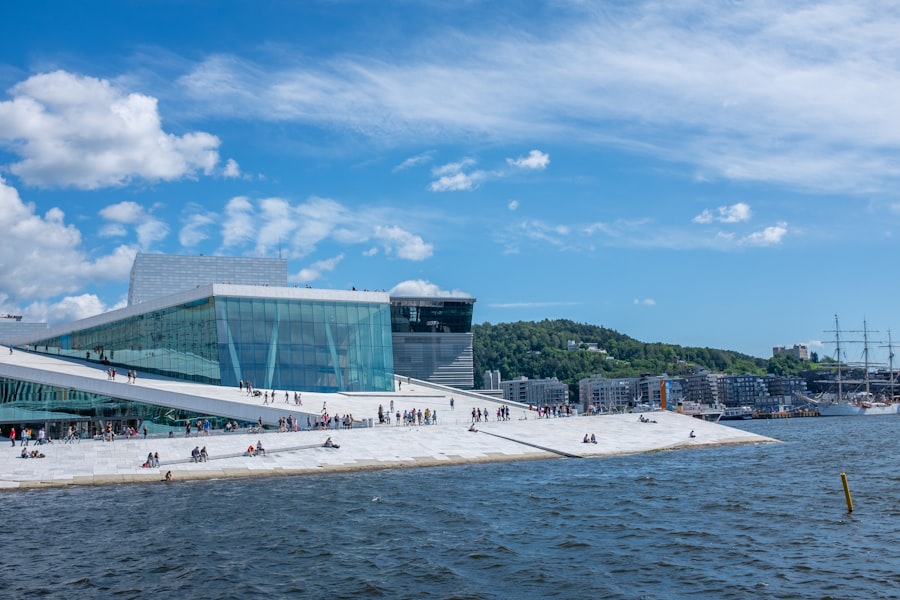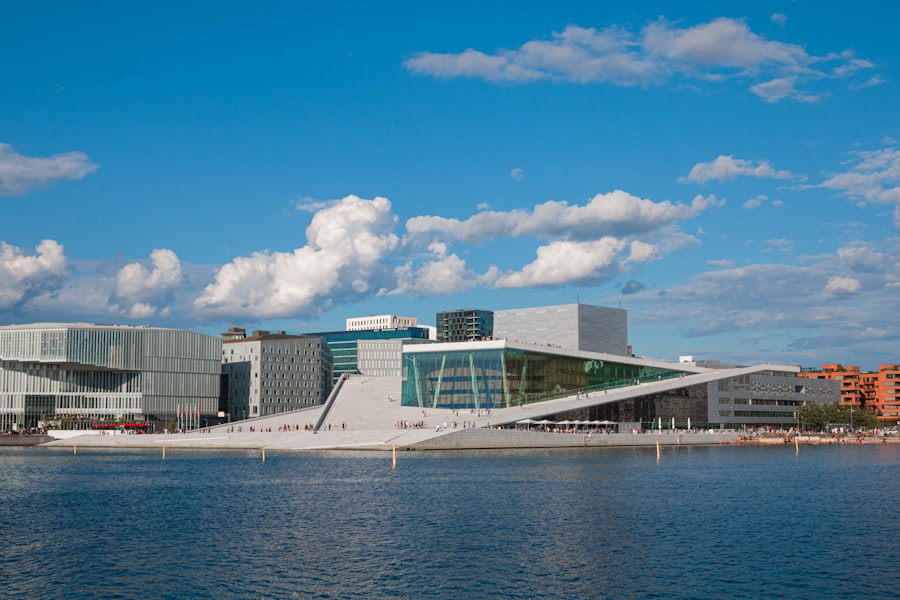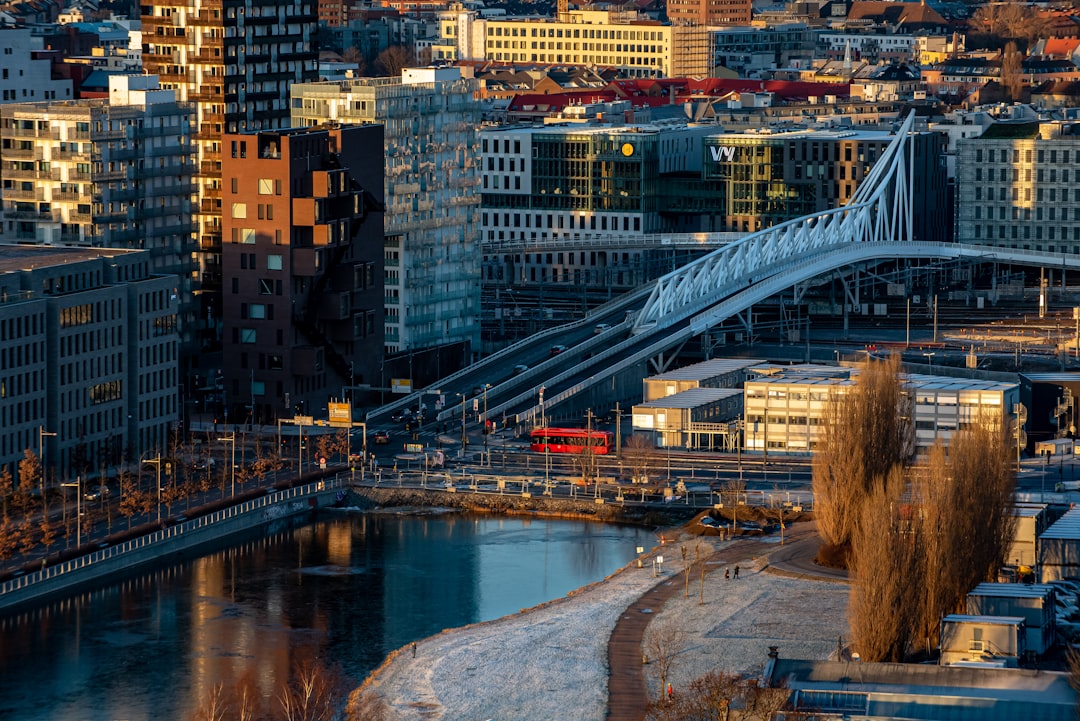Nestled between the majestic fjords and rugged mountains of Norway, Vestlandet is a region that embodies the spirit of Norwegian culture. This area, known for its breathtaking landscapes and rich heritage, is home to a unique blend of traditions, dialects, and customs that have evolved over centuries. The culture of Vestlandet is not merely a reflection of its geographical beauty; it is a tapestry woven from the lives and stories of its people.
As one delves into the heart of this region, it becomes evident that the culture is deeply rooted in the natural environment, shaped by the challenges and opportunities presented by the land and sea. The Vestlandet culture is characterised by its strong sense of community and connection to nature. The people of this region have historically relied on fishing, farming, and trade, which has fostered a lifestyle that values hard work and resilience.
This connection to the land is evident in the local customs, festivals, and even the cuisine, all of which celebrate the bounty of the natural world. As we explore the various facets of Vestlandet culture, we will uncover the historical influences, linguistic nuances, culinary delights, and artistic expressions that make this region a vibrant part of Norway’s national identity. Schedule a one-on-one consultation with our relocation specialists to simplify your move to Norway. https://norwayrelocation.no/one-hour-strategy-session/
Summary
- Vestlandet culture is rich in history, traditions, and unique dialect that sets it apart from other regions in Norway.
- The cuisine of Vestlandet is known for its use of fresh seafood, wild game, and traditional dishes like fårikål and raspeballer.
- Traditional clothing and folk costumes in Vestlandet are often brightly coloured and intricately embroidered, reflecting the region’s cultural heritage.
- Folk music and dance are integral parts of the cultural identity of Vestlandet, with traditional instruments like the Hardanger fiddle being widely used.
- Festivals and celebrations in Vestlandet, such as Sildajazz and the Osa Festival, showcase the region’s vibrant arts and cultural scene.
History and Traditions of Vestlandet
The history of Vestlandet is as intricate as its landscape, marked by a series of significant events that have shaped its cultural identity. From the Viking Age to the present day, this region has been a crossroads of trade and exploration. The Vikings, known for their seafaring prowess, left an indelible mark on Vestlandet, establishing settlements and trade routes that connected Norway with other parts of Europe.
This maritime heritage continues to influence the region’s traditions, with many local customs rooted in seafaring practices. Traditions in Vestlandet are often passed down through generations, preserving the stories and values of the past. Festivals celebrating seasonal changes, agricultural practices, and historical events are integral to community life.
For instance, Midsummer celebrations reflect ancient pagan customs, while harvest festivals honour the hard work of farmers. These traditions not only serve as a reminder of the region’s history but also foster a sense of belonging among its inhabitants. The people of Vestlandet take pride in their heritage, ensuring that their customs remain alive through storytelling, music, and communal gatherings.
The Unique Dialect of Vestlandet

One of the most fascinating aspects of Vestlandet culture is its unique dialects, which vary significantly from one locality to another. The dialects spoken in this region are part of the larger Norwegian language family but possess distinct characteristics that set them apart. These variations are influenced by geography, history, and social interactions, resulting in a rich linguistic tapestry that reflects the diversity of the region.
The dialects of Vestlandet are not merely a means of communication; they are a vital part of cultural identity. They carry with them nuances and expressions that encapsulate local traditions and ways of life. For instance, certain words may have specific meanings tied to local customs or natural phenomena.
This linguistic diversity fosters a sense of pride among residents, who often view their dialect as a badge of honour. Efforts to preserve these dialects are ongoing, as younger generations recognise their importance in maintaining cultural heritage.
Cuisine and Culinary Traditions of Western Norway
The culinary traditions of Vestlandet are deeply intertwined with its geography and climate. The region’s access to the sea provides an abundance of seafood, while fertile valleys yield fresh produce. Traditional dishes often reflect this bounty, showcasing local ingredients that have been harvested or caught with care.
Fish plays a central role in the diet of Vestlandet residents, with dishes such as “lutefisk” and “klippfisk” being popular staples. In addition to seafood, traditional meals often feature hearty ingredients like potatoes, root vegetables, and game meats. Recipes are frequently passed down through families, preserving age-old cooking techniques and flavours.
Community gatherings often revolve around food, with shared meals serving as a way to strengthen bonds among neighbours and celebrate local produce. The culinary landscape of Vestlandet is not just about sustenance; it is a reflection of the region’s history and cultural values.
Traditional Clothing and Folk Costumes of Vestlandet
Traditional clothing in Vestlandet is a vibrant expression of cultural identity and heritage. The folk costumes, known as “bunad,” are often worn during special occasions such as weddings, festivals, and national celebrations. Each bunad is unique to its locality, featuring distinct patterns, colours, and embroidery that tell stories about the wearer’s family history and regional roots.
The craftsmanship involved in creating these costumes is remarkable. Artisans dedicate countless hours to hand-stitching intricate designs that reflect local flora and fauna or historical motifs. Wearing a bunad is not merely about aesthetics; it is a way for individuals to connect with their ancestry and showcase their pride in their heritage.
The tradition of wearing folk costumes continues to thrive in Vestlandet, with younger generations embracing these garments as symbols of cultural continuity.
Folk Music and Dance of Western Norway

Folk music and dance are integral components of Vestlandet’s cultural fabric. The region boasts a rich musical heritage characterised by traditional instruments such as the “hardanger fiddle,” which produces a hauntingly beautiful sound that resonates with the spirit of the landscape. Folk songs often tell stories of love, loss, nature, and everyday life, reflecting the experiences and emotions of the people.
Dance forms an essential part of folk music traditions in Vestlandet. Traditional dances are often performed during festivals and community gatherings, bringing people together in celebration. These dances vary from lively group performances to more intimate partner dances, each with its own rhythm and style.
The interplay between music and dance creates an atmosphere of joy and camaraderie, reinforcing social bonds within communities.
Festivals and Celebrations in Vestlandet
Festivals in Vestlandet are vibrant expressions of cultural identity that bring communities together in celebration. Throughout the year, various events highlight local traditions, seasonal changes, and historical milestones. One notable festival is “Bergenfest,” which showcases both local and international music talent against the backdrop of Bergen’s stunning scenery.
This event not only promotes artistic expression but also fosters a sense of unity among attendees. Another significant celebration is “Syttende Mai,” Norway’s Constitution Day, which is marked by parades featuring traditional costumes and lively music. In Vestlandet, this day holds particular importance as communities come together to honour their shared heritage and national pride.
These festivals serve as reminders of the region’s rich cultural tapestry while providing opportunities for residents to connect with one another through shared experiences.
Arts and Crafts of Western Norway
The arts and crafts scene in Vestlandet is a testament to the region’s creativity and craftsmanship. Traditional handicrafts such as wood carving, weaving, and pottery have been practised for generations, often reflecting local themes and natural elements. Artisans take great pride in their work, using techniques passed down through families to create pieces that embody both functionality and beauty.
Contemporary artists in Vestlandet continue to draw inspiration from their surroundings while experimenting with new mediums and styles. Galleries showcasing local talent can be found throughout the region, providing platforms for artists to share their work with both locals and visitors alike. This dynamic interplay between traditional craftsmanship and modern artistic expression enriches the cultural landscape of Vestlandet.
Outdoor Activities and Nature in Vestlandet
The stunning natural beauty of Vestlandet offers countless opportunities for outdoor activities that allow residents and visitors alike to connect with their surroundings. The region’s dramatic fjords, towering mountains, and lush valleys provide a playground for adventure enthusiasts seeking hiking, kayaking, or skiing experiences. The breathtaking landscapes serve not only as a backdrop for these activities but also as a source of inspiration for those who call this region home.
Outdoor activities in Vestlandet are often intertwined with local traditions and customs. For example, many families partake in seasonal berry-picking or mushroom foraging as part of their cultural heritage. These activities foster a deep appreciation for nature while promoting sustainable practices that honour the land’s resources.
Whether it’s exploring hidden trails or enjoying leisurely picnics by the fjord, outdoor pursuits are an integral part of life in Vestlandet.
Cultural Etiquette and Social Customs in Western Norway
Understanding cultural etiquette is essential for anyone wishing to engage with the people of Vestlandet meaningfully. Norwegians are known for their egalitarian values; thus, politeness and respect are paramount in social interactions. Greetings typically involve a firm handshake accompanied by eye contact—a gesture that conveys sincerity and openness.
Social customs also emphasise hospitality; guests are often welcomed with warmth and generosity. It is customary to bring a small gift when invited to someone’s home as a token of appreciation. Additionally, conversations may touch upon topics such as nature or local traditions—subjects that resonate deeply with residents’ identities.
By embracing these social customs, visitors can foster connections that transcend cultural boundaries.
Preserving and Promoting the Vestlandet Culture
As modernity continues to influence lifestyles across Norway, efforts to preserve and promote Vestlandet’s unique culture have become increasingly important. Local organisations work tirelessly to document oral histories, support traditional craftspeople, and promote regional festivals that celebrate cultural heritage. Educational initiatives aim to engage younger generations in learning about their roots while fostering pride in their identity.
Moreover, institutions like the NLS Norwegian Language School in Oslo play a crucial role in helping newcomers integrate into Norwegian society while appreciating its diverse cultures—including that of Vestlandet. By offering Norwegian language courses tailored for various proficiency levels, NLS empowers individuals to connect more deeply with their communities while navigating daily life in Norway. In conclusion, the culture of Vestlandet is a rich tapestry woven from history, tradition, language, cuisine, art, music, outdoor pursuits, etiquette—and above all—community spirit.
As we celebrate this vibrant culture today while looking towards its future preservation through education initiatives like those at NLS Norwegian Language School in Oslo—let us remember that every interaction contributes to keeping these cherished traditions alive for generations to come.
Register for a Norwegian class at the NLS Norwegian Language School now!

